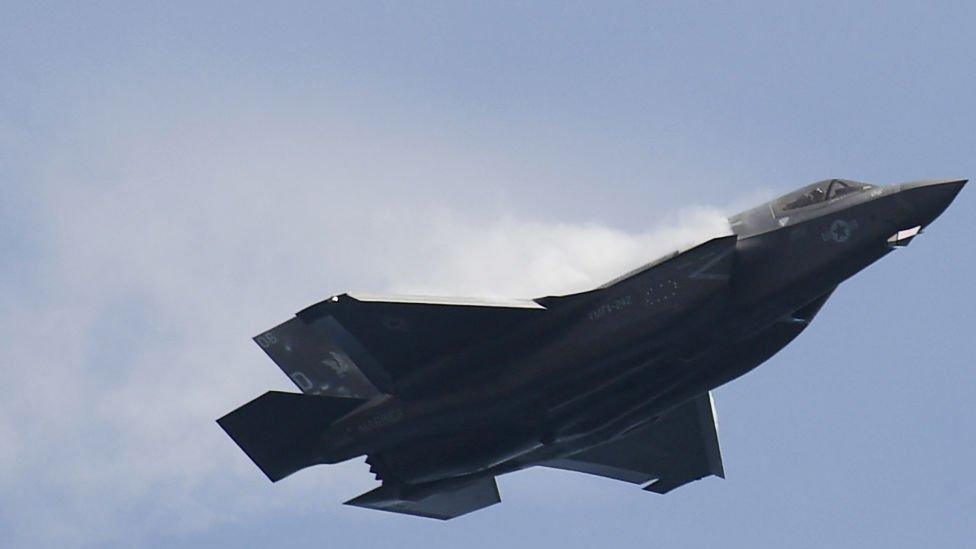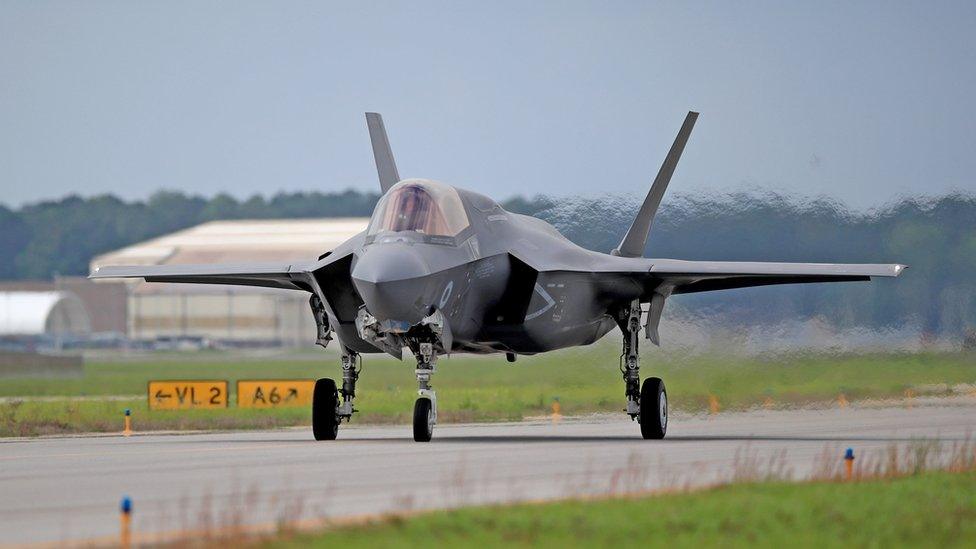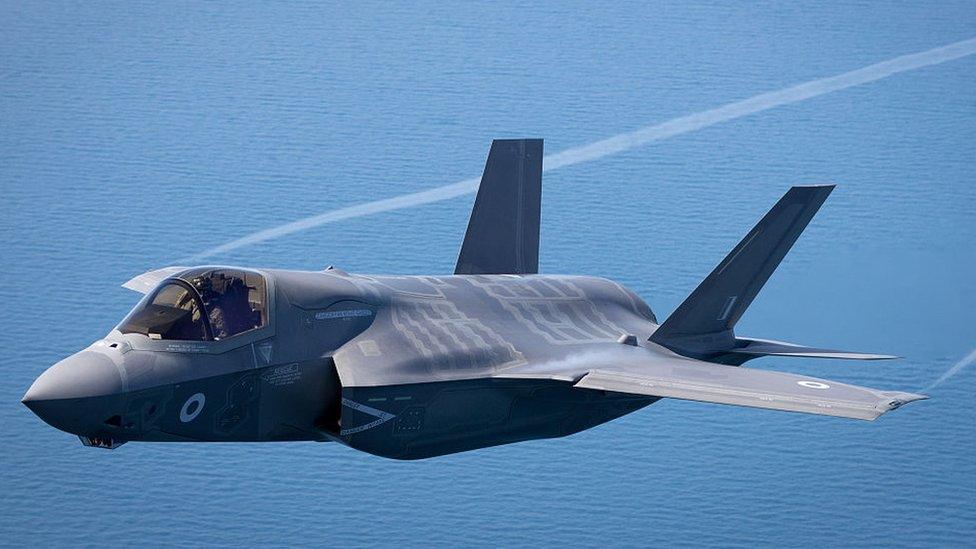F-35 crash: Pilot called 911 after parachuting into backyard
- Published
Listen to 911 call pilot made after F-35 crash
The pilot of a US Marines F-35 jet that went missing called emergency services from a South Carolina home where his parachute landed.
In audio from the call, obtained by the BBC, the pilot told a dispatcher that he was "not sure" where his $100m (£80m) plane was.
A local resident can also be heard calmly explaining that the pilot had landed in his backyard.
Debris from the jet was discovered on Monday, a day after it went missing.
In the four-minute call to the 911 emergency number, the resident of a North Charleston home can be heard telling a confused dispatcher that "we got a pilot in the house".
"I guess he landed in my backyard," the resident added. "We're trying to see if we could get an ambulance to the house, please".
The 47-year-old pilot, who has not been named, said that he felt "OK" after ejecting at approximately 2,000ft (609m). Only his back hurt.
"Ma'am, a military jet crashed. I'm the pilot. We need to get rescue rolling," he added.
"I'm not sure where the airplane is. It would have crash landed somewhere. I ejected."
The pilot later again asked the dispatcher to "please send an ambulance" and said that he "rode a parachute down to the ground".

The US military's F-35 programme is plagued with technical issues, according to a new report
According to the Marine Corps, the pilot ejected as a result of a malfunction and landed in a residential area near Charleston's international airport.
In a separate 911 call obtained by the AP, an unidentified official said that they had "a pilot with his parachute" that had lost sight of the aircraft "on his way down to the weather".
While it is unclear how and why the F-35 continued flying after the pilot's ejection, the Marine Corps said that its flight control software may have helped it remain level even without a pilot's hands on the controls.
"This is designed to save our pilots if they are incapacitated or lose situational awareness," the statement quoted by the AP said.
The search may have been hampered by the plane's anti-radar stealth capabilities and technology that wipes the jet's communications system if a pilot ejects.
An investigation into the incident is ongoing.
A report to the US government on Thursday, external said that inadequate training, a lack of spare parts and complex repair processes had left the US military's F-35 fleet around 55% effective.
Watch: Aerial footage shows US fighter jet debris
Related topics
- Published19 September 2023

- Published18 September 2023

- Published22 February 2023
